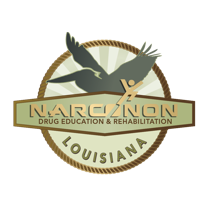Incarceration is Not Rehabilitation

Most people are aware the US has 5% of the world’s population yet we have 25% of the world’s total prison population. The more shocking fact is, according to National Association of Drug Court Professionals, eighty percent of the crimes committed in the US that lead to incarceration, involved alcohol or drugs. Additionally, sixty percent of those arrested for any crime test positive for at least one illicit substance at the time of their arrest.
I know there are a lot of people out there saying “So what?” or “Good, lock them up”, but the reality of it is a higher crime rate affects everyone; the victims of the crime, the family of the person incarcerated as well as the community whose taxes are increased to fund the overpopulated jails. According to the Justice Policy Institute, approximately 95 percent of incarcerated addicts will return to substance abuse after their release from prison, and sixty to eighty percent of them will commit new crimes. Others will become addicted while in prison due to access of smuggled drugs.
This is because while incarceration may address the crime, it doesn’t address a person’s underlying issues. Justice doesn’t treat the unethical actions that contribute to the criminal behavior. The Washington Post reports that of each tax dollar spent by the government on substance abuse, only 1.9 cents are used for addiction prevention and treatment. I’m not implying that people who commit crimes shouldn’t have to pay their dues to society, but with this problem on a steady rise, I think we can all agree something different should be done.
That is not to say that everyone whose incarcerated doesn’t receive treatment, but the level of treatment they receive has low standards and is often unsuccessful. Obviously, my viewpoint is a little bias considering I was incarcerated many times with no success in refraining from substance abuse. Eventually, I found help at Narconon.
Narconon is a unique program that addresses the physical and mental aspects of addiction, by detoxing the body, and confronting the underlying issues that continue to drive someone to use substances with one on one counseling.
People who use drugs and commit crimes need to take responsibility for what they’ve done, but if we expect them to magically be better people after their stint, or a 28-day rehab program, our society will also have to take responsibility for the continued increase in crime rate. They cannot solve their problems with the same mind that created them. I can only speak for my experience, but statistics also speak for themselves.
- “The Facts on Drugs and Crime in America.” National Association of Drug Court Professionals. Accessed 15 May 2018.
- “Treatment or Incarceration?” Justice Policy Institute. Jan. 2004.
- Sack, David. “We Can’t Afford to Ignore Drug Addiction in Prison.” The Washington Post. 14 Aug. 2014.
